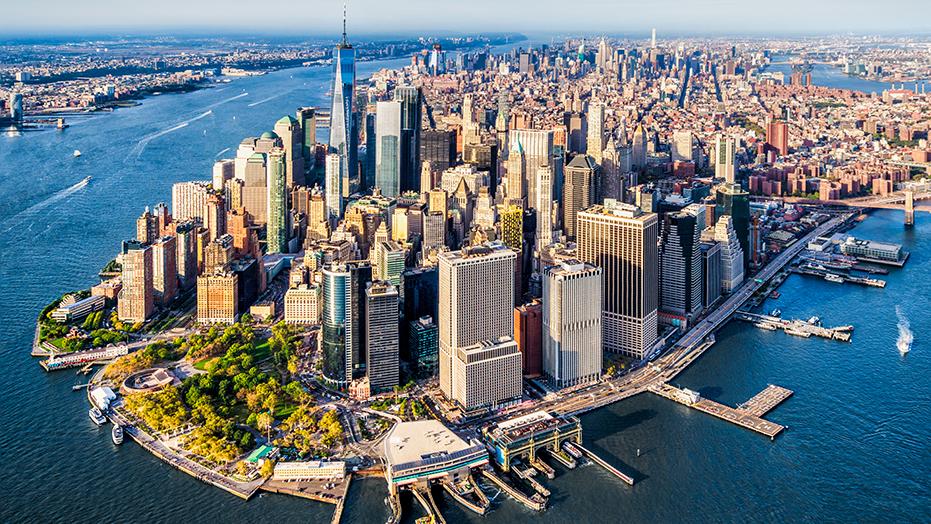Waldorf Astoria renovations near completion. Take a look inside
New York’s Waldorf Astoria hotel, with its art deco design, gilded prestige and unique public spaces, has been an icon of luxury since it opened on Park Avenue in 1931.
Soon, you’ll be able to own a piece of it.
The hotel closed in 2017 as its owner, since absorbed by Chinese insurance company Dajia, prepared to renovate the aging building and transform half of it into condos. The first of those units are set to hit the market in early 2020, with prices starting at about $1.7 million.
And while the building has a new owner, the team working on the project has focused on its past and the features that made it a landmark. Frank Mahan of architectural firm Skidmore, Owings & Merrill told FOX Business that the goal with the renovations was to restore the building to its original design intent while updating it for contemporary needs and expectations.
“The big idea is to create a bridge between the past and the future of the architectural, to create kind of a cultural bridge, if you will,” Mahan said.
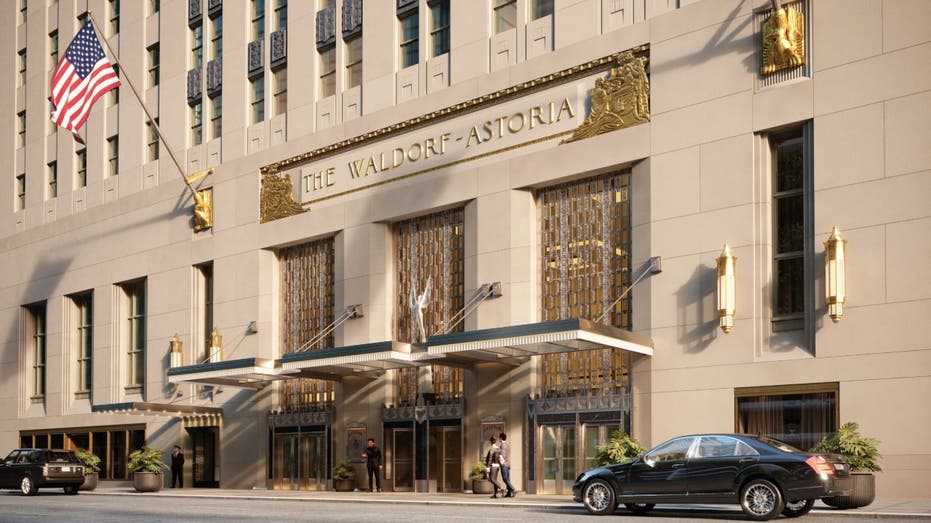
The Waldorf Astoria's Park Avenue entrance (Noë & Associates/The Boundary)
HILTON CLOSES ON $1.95B SALE OF WALDORF ASTORIA NEW YORK TO CHINESE INSURER
When the Waldorf Astoria opened on Park Avenue in 1931, it was the tallest hotel in the world at 47 stories. Its air conditioning was a novelty at the time — called “manufactured air,” according to Mahan — and it featured amenities like room service, a telephone switchboard and radios in every room.
“All kinds of superlatives were written about this building,” Mahan said.
But over time, the building aged and customers’ tastes changed, posing what Mahan called “an existential threat” to the hotel’s business. Renovations were made, but not always “sensitively.” Over time, the building’s spaces changed and lost sight of some of the thoughtful ways they were designed.
The redesign team uncovered original architect’s drawings and sketches, a partial set of construction drawings and an entire “specification book” from a museum’s archives, plus they examined pop culture materials like postcards and movies that were filmed in the hotel.
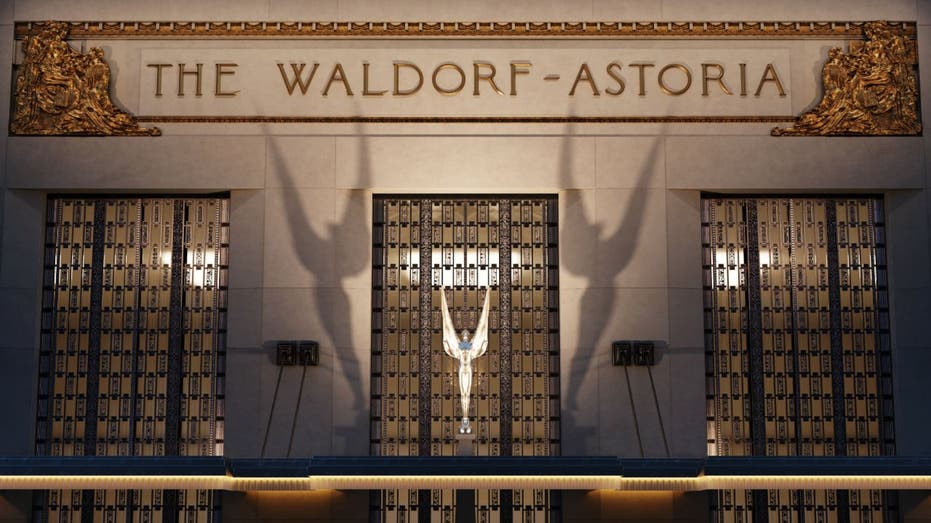
The Waldorf Astoria's Park Avenue facade (Noë & Associates/The Boundary)
GET FOX BUSINESS ON THE GO BY CLICKING HERE
The renovated towers of the Waldorf Astoria will include 375 condominium units atop the 375 redesigned hotel suites, according to Douglas Elliman Development Marketing, the firm handling marketing for the development. The homes range from studios to penthouses. Mahan said the condo portion of the building was designed “to accommodate a really spectacular residential experience.” The team was able to take advantage of the original art deco design’s small setbacks to provide many private terraces.
“In terms of design, they certainly take their inspiration from the art deco architecture of the building,” Mahan said. “It will be a contemporary interpretation of that art deco architecture.”
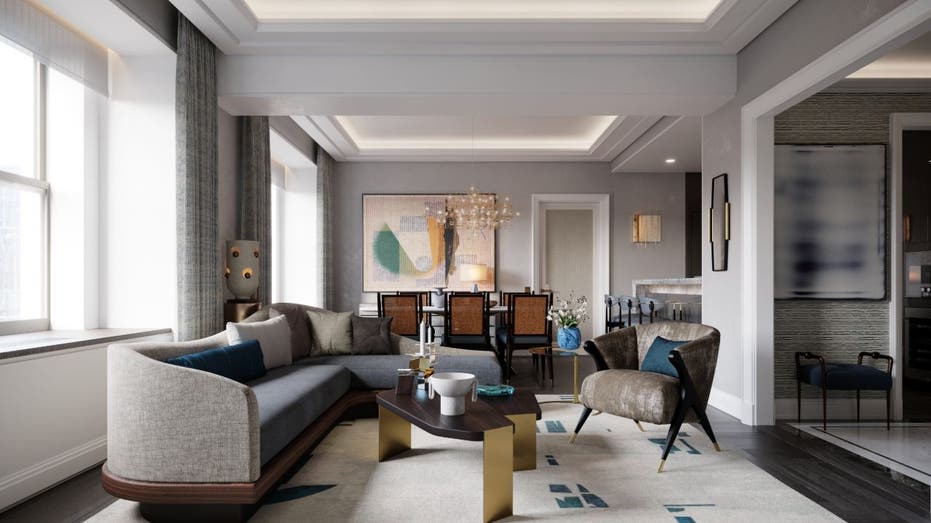
A living room in one of the Waldorf Astoria's renovated condominiums. (Noë & Associates/The Boundary)
CHINA TAKES OVER ANBANG INSURANCE, OWNER OF THE WALDORF ASTORIA
The homes feature the work of designer Jean-Louis Deniot and the hotel interiors and public spaces were designed by Pierre-Yves Rochon, according to the brokerage. Art collector and auctioneer Simon de Pury curated the art collection for residents.
Residents will have access to 50,000 square feet of private amenities including a lap pool and spa, plus 100,000 square feet of hotel amenities.
The Waldorf originally featured a porte-cochere that ran all the way from 49th to 50th street. Mahan said he split it in two, giving the residents a private ground floor lobby where there originally hadn’t been one, while still allowing both the hotel and condos to each have a porte-cochere.
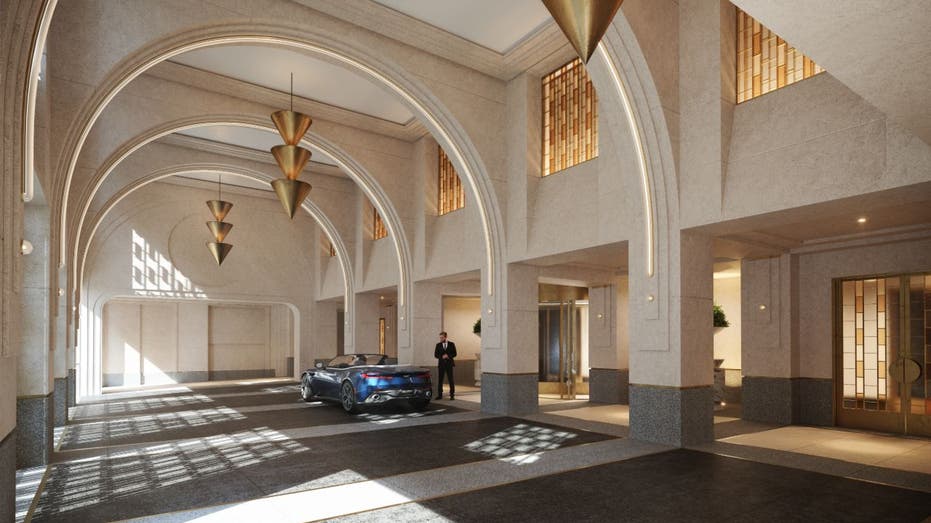
The Waldorf Astoria's porte-cochere (Noë & Associates/The Boundary)
T-MOBILE CEO SELLS $17.5M NEW YORK PENTHOUSE TO GIORGIO ARMANI
“It tries to take advantage of the inherent qualities and characteristics of the buildings, which really differentiates it from a lot of newer comparable product in the city,” Mahan said of the design.
The highlight for most people who visit the building will likely be its public spaces, which run straight through between Park and Lexington avenues. Mahan said the historic designs showed that renovations had dulled the “sense of drama” the spaces had originally created for visitors.
“The scale, the generosity, the sheer number of public spaces is really unrivaled in most buildings in New York,” he said. “So there’s such an opportunity here to almost create a sort of ‘living room’ for New Yorkers. And it did once serve that function, but not in particularly recent memory.”
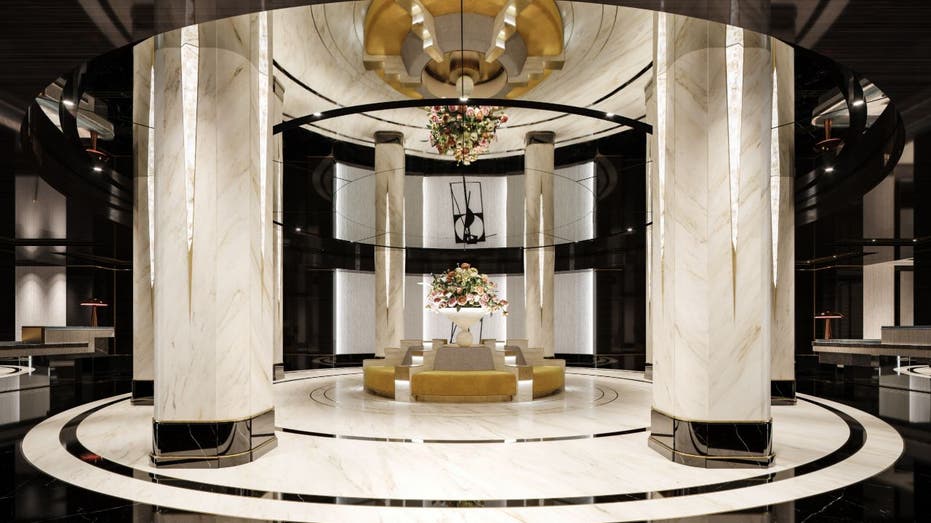
The residential lobby (Noë & Associates/The Boundary)
Once the scaffolding comes down, the Waldorf Astoria will “sparkle” again in a way few people will remember, according to Mahan.
“I think when people enter the building again, it’s going to look better than ever, better than they remember it, better than it has for decades,” he said.




















